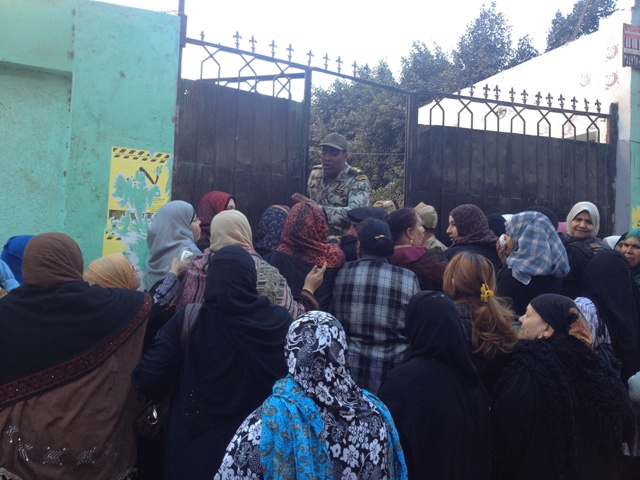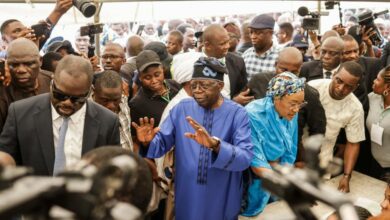
Farida Mohamed, an elderly voter in Giza, brought a chair to her polling station on Saturday in anticipation of the long queues.
Leaning on her crutch, she said her goal was to vote on the constitutional referendum no matter how long she had to wait. Accompanying her was Mohamed, her middle-aged son.
“We are scared. I have grown old but I’m scared of what this constitution will do to my grandsons. I don’t want them to live like slaves,” she said, after waiting in line for hours to vote “no.”
Egyptians headed to the ballot boxes again on Saturday, in the second phase of the referendum on the divisive draft constitution. Initial results suggest a total of 64 percent voting to approve the constitution.
At the polling station in Omraneya where the two waited, the majority of voters were elderly women and the lines advanced at a painfully slow pace.
Only two employees were available to look through the thousands of names and find voter numbers on the lists. As a result, it took some between four to six hours to vote.
Despite the low national turnout of about 30 percent between both rounds, polling stations were overcrowded and disorderly due to a lack of judges supervising the referendum.
When it got too crowded at this school, military soldiers guarding the polling station closed the gates for a while. When they were allowed in, the women then had to climb a flight of stairs and spend more time crammed in a corridor waiting outside their substations.
The ordeal was made all the more uncomfortable due to the constant quarreling, pushing and yelling by voters who grew impatient.
Since elderly women constituted most of the voters here, they were not allowed to skip the line as in other stations. Many of the women over 60 waited for hours, at times resting on the floor or the few benches available.
On their way out, they were again pushed and shoved as they made their way through the crowds still waiting outside.
But there they remained, refusing to leave before voting even though some grew visibly ill.
“If every person turned around when it got tough, then we wouldn’t make a difference,” said Aida Aziz, as two relatives escorted her out of the polling station after a five-hour process.
Aziz, coughing violently and barely able to talk, teared up as she lamented the fact that voters had to suffer through the lacking logistics to participate in the referendum.
But she believes it is her responsibility to participate. “We are still alive, right? Then we should do something,” she said.
Most voters here said their decision was not motivated by their own interest, but by a desire to contribute to the well-being of the country and future generations.
“We want things to be fixed and for this beautiful young generation to grow up in an atmosphere that allows them to play their part,” said Thoraya, as she sat on the bench for a while after voting.
Gamalat Hasabo, shivering from the cold and complaining of pain after the long wait, said: “This is my country, my constitution, my kids … I could barely walk up here and I can barely walk down now, but I voted.”




